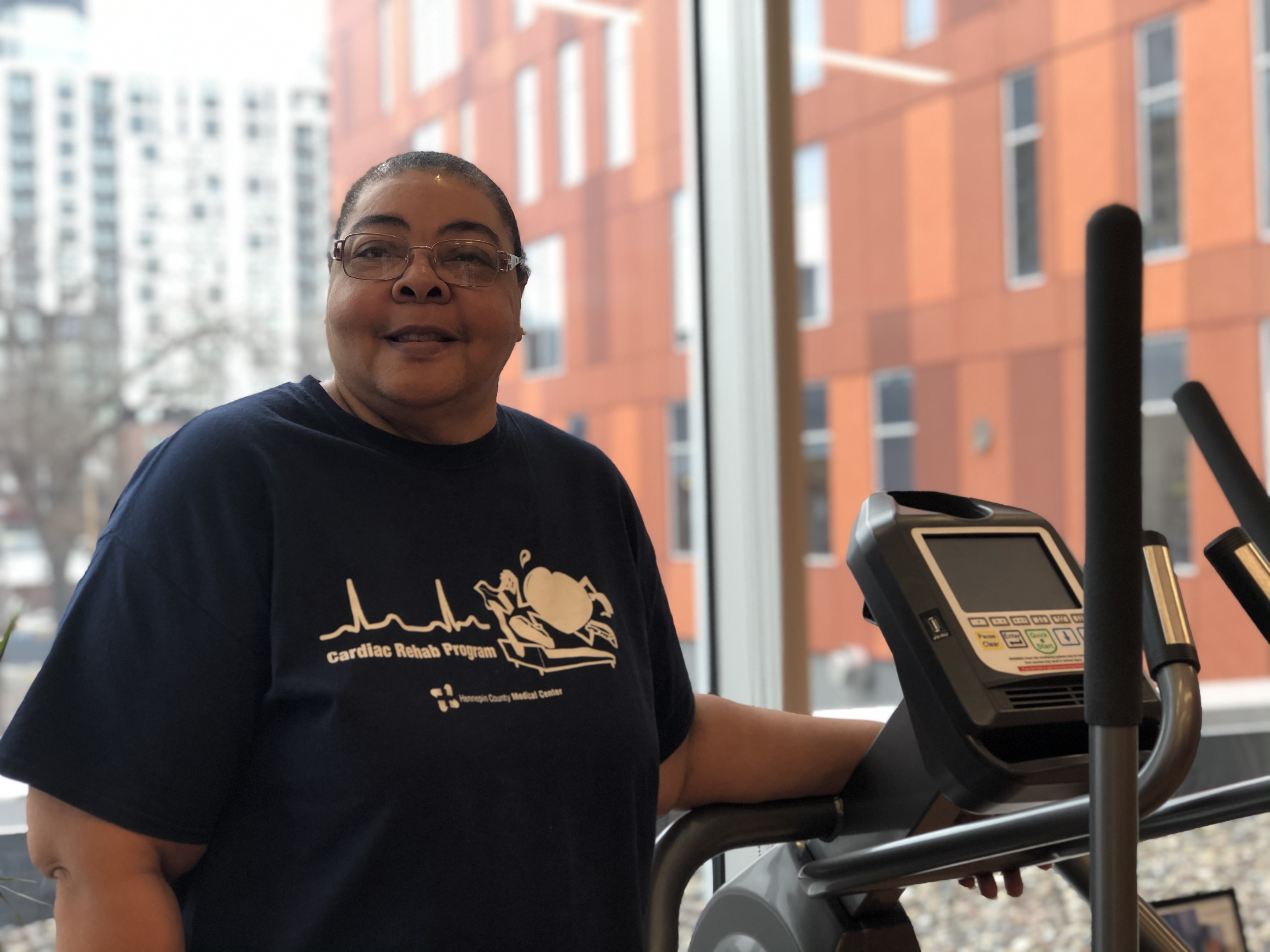Cardiovascular Health
- Cardiovascular Health Home
- CVH Data and Trends
- CVH Programs & Resources
- Minnesota 2035 Plan
- Minnesota Stroke Program
- About Us
Learn More
Related Topics
Tenacity and teamwork help cardiac rehab patient have more time with family
“I can tell I’m getting stronger, no more leaning over to catch my breath.” 
Vester, a 55 year old who was admitted to Hennepin Healthcare after suffering from a heart attack, is now exercising regularly and she says, “I feel better than ever.”
Vester, who had been homeless and struggled with shortness of breath for at least three months prior to her heart attack, also experienced anxiety, depression, and panic attacks. She had issues with high blood pressure, high blood cholesterol, diabetes, and chronic pain. Initially the doctor hoped to treat her with a stent that would allow her a quick recovery. However, her artery blockages were too great, and she needed open heart surgery.
The surgery was successful, and afterwards, Vester was ready to get her health back. With the support of her husband and Hennepin Healthcare staff, Vester participated in cardiac rehab, a multi-session program that can help patients recover faster and prevent a future heart attack or stroke. The program focuses on reducing risk factors, such as managing stress, moving more, and adopting healthy eating habits.
Although Vester and her husband initially declined enrollment because they had no friends to rely on for rides and felt the bus would be too challenging, Hennepin Healthcare staff assisted Vester in securing transportation through her UCare coverage. She was a regular and enthusiastic attendee every Monday, Wednesday and Friday for 36 sessions, and her husband came along to cheer her on.
Vester was always up for a challenge on her various exercises, stating, “That’s how I’ll get stronger.” She learned about her medications, dietary recommendations for heart patients with diabetes, anatomy and physiology, risk factors for heart disease, and stress management with relaxation techniques. She also learned how to manage her own home exercise program.
It wasn’t easy. Early on in the program, Vester’s blood pressure was still high, but staff worked with her cardiology provider to adjust her medications. She also had some family challenges. Vester’s grandchild had been hospitalized in Chicago and she felt her daughter needed her.
Ultimately, however, Vester kept at it. “I decided to stay and finish rehab. I want to be the best I can be to help my daughter and granddaughter,” she explained. “When I get to Chicago I am going to teach my daughter everything I learned here.”
Learn more about how MDH supports cardiac rehab.